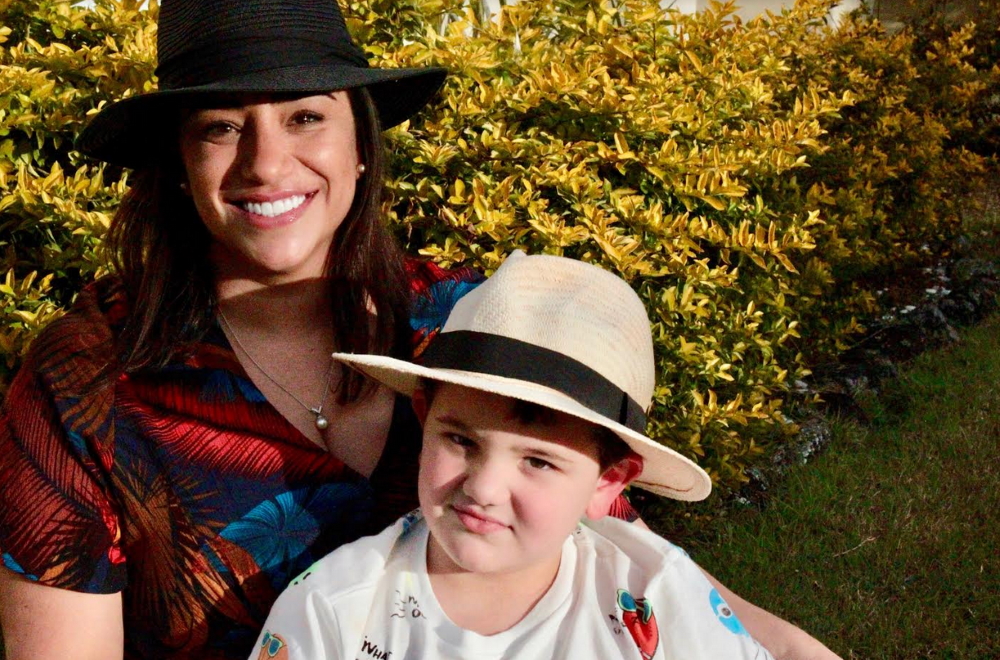Mum of autistic kids calls on Australians to help embrace those with autism
- Written by Tess Sanders Lazarus

One in 70 people in Australia have Autism Spectrum Disorder. In the United States, the number increases to 1 in 54.
According to Kathrine Peereboom, mother of three autistic boys and founder of Spectrum Support, despite the high rate of autism, community understanding about the condition or how to interact with people on the spectrum needs greater awareness.
Spectrum Support is a not for profit organisation dedicated to raising awareness of autism and providing training, support and education.
“Sadly, a lot of children and adults with autism feel isolated and are excluded from social activities at school and at work because people don’t understand how to engage with them. As a result, those individuals suffer because they are excluded. Loneliness is a huge concern for many on the spectrum with suicide already a frightening statistic,” Peereboom said.
“I’d like to see more being done across our community to grow awareness of autism. If we all understood it better, we would be more giving and accepting as people.
“My sons are often excluded from birthday party invitations. Even worse, kids with autism who invite school friends to their party often find no one turns up. As a parent this is devastating to witness.
“A lot of people don’t even realise that a person may have autism – they just get labelled as odd or weird. If people knew more about autism, they may be more inclined to make an effort and understand why someone is behaving differently.”
Peereboom has put together some tips to help people understand how to interact with someone who may have autism.
Communicating differently
Kids and adults with autism may communicate differently in social settings. Talking with others or answering questions at times can be uncomfortable as is recognising social cues. Taking turns in conversations, eye contact or understanding facial expressions can be challenging for some.
“It is important to recognise the difference in communicating styles” Peereboom said.
“My boys are non-verbal and are beginning to use a communication device (AAC). Patience, persistence and kindness will always win and gives the opportunity for their voice to be heard.”
Repetitive behaviours
Sometimes people with autism can seem very focused on certain subjects or topics. They may want to talk about or play with those things all the time or engage in highly repetitive behaviour which is known as stimming. These actions could include twirling of hair, flicking or spinning objects or moving parts of the body.
“This behaviour is completely normal, safe and provides comfort,” Peereboom said.
“Often those who are asked to stop stimming or are bullied for their mannerisms will find it extremely difficult to stay engaged in the conversation or activity. Forcing restrictive behaviours diverts the attention away from engaging and concentrating to physical compliance. Be kind and thoughtful, as we are all striving for acceptance.
Using speech in unusual and untimely ways
Kids and adults with autism may speak differently. Communication devices, visuals, monotone or formal approaches are common as is using different tones or sounds.
“Continue to speak normally as you would when engaging with anyone else. While some on the spectrum may communicate differently, many non-verbal autistics have full comprehension.” Peereboom said.
Not understanding personal space
Spatial awareness is a key aspect of autism. Many people with autism do not understand what personal space means. As a result, they can move very close to people when they are speaking or undertaking activities with them.
“Some people may find this quite confronting,” Peereboom said.
“Identifying that you may feel uncomfortable when they enter your personal space can be difficult. Avoid physical touching, making an issue of it, or speaking loudly. Simply take a step backwards and continue the conversation.”
Difficulty with reading emotions
Autism is a spectrum and there are many who break the stereotype of not being able to read or express emotions. However, it often that some have difficulty identifying them or using them in the correct context.
“When interacting with others, recognition on whether someone is being funny, upset, angry or frustrated, might not be instantly associated with the emotion,” Peereboom said.
"Don't be offended by something someone may say or do - or that they do not seem to understand how you are feeling. If it is very important to you that they understand, then explaining your feelings in different ways will often help to convey your point of view. Visual aids such as pictures can often offer instant recognition without the added senses confusing the message."
Intolerance of lights, colour, sound and certain foods
Many kids and adults with autism have low tolerances for certain foods, sounds, colours and lighting.
"If you are inviting someone with autism into your home or workplace, it would be ideal and respectful to ask ahead if any of these may pose a risk and what you can do to create a welcoming environment. Sometimes a simple light or volume adjustment can make the world of difference and create inclusion and acceptance" Peereboom added.
Peereboom is encouraging people to learn more about autism from day care environments to schools and the work place . Knowledge creates understanding and leads to greater acceptance.
"Simple acts of kindness and acceptance can change lives," Peereboom said.





